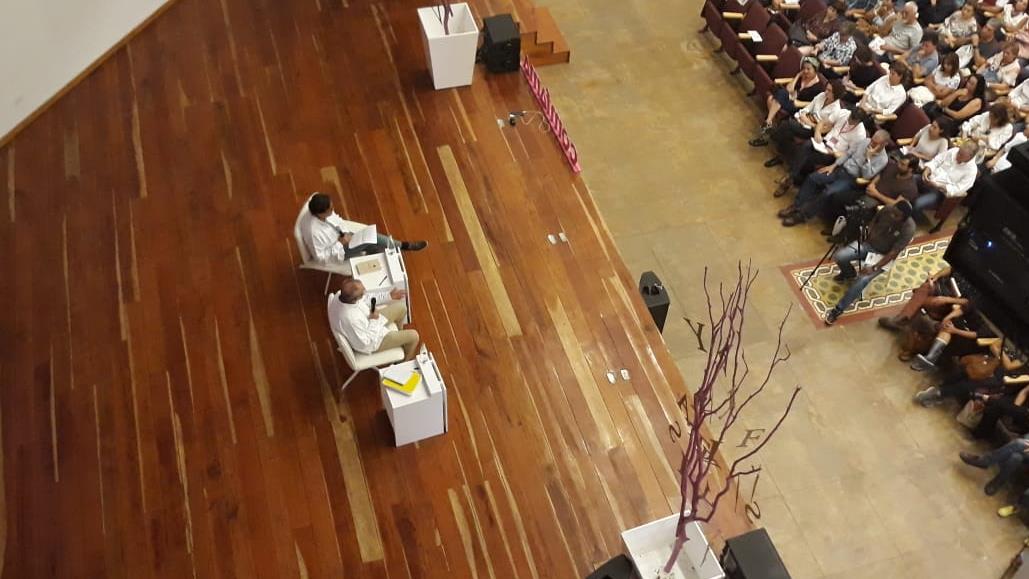
The Hay Festival Jericó closed with Jorge Orland Melo speaking with Saul Alvarez about his book Historia Mínima de Colombia, published in 2017 and now in its third edition. The discussion kicked off with the issue of where literature and history meet. Melo sees a significant overlap: “With both we ask what life is like. For the reader, both are necessary – it’s important to read a novel in which you read about the lives lived”.
The novelist, however, has a big advantage: the right to imagine. The historian must stick to the complicated process of evaluation of sources, rigorous treatment of documents, and the assessment of credibility.
Writing, he said, was key to the Spanish conquest of this entire continent. Colombian indigenous groups did not use written language: society was fragmented, there wasn’t an empire or a common language. The challenge for Colombia now is to fully understand its own history, to re-learn the skills of critical reading and verification so that discussion can centre - not around the personal - but about the truth.
This is particularly important for children, to learn intersectional approach which would include anthropology, social sciences, economics, all applied to the history of Colombia. “We need to create materials for children to teach history. There are so many things we can do. But these materials are not available”.
He doesn’t, however, believe that simply knowing history is enough to give us a perfect view of the future: “It’s the same - knowing or not knowing. Knowing history doesn’t allow you to predict with any certainty. It is more about participating in an informed way in our society”.